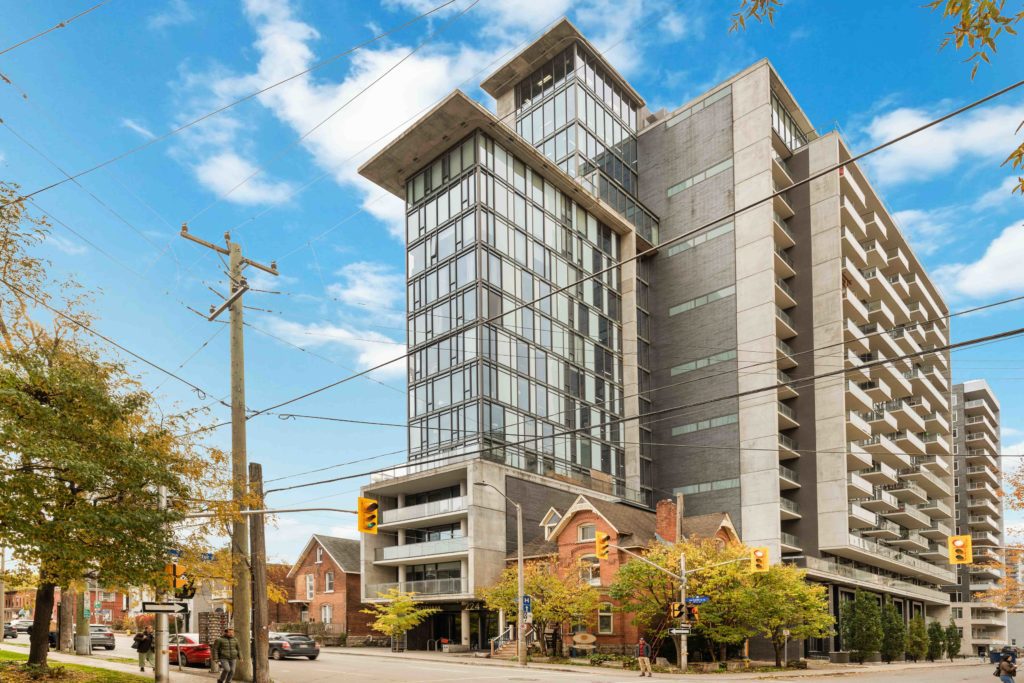In the bustling city of Ottawa, the condo market has become a significant facet of urban living, attracting a diverse range of residents from young professionals to retirees. Managing a condominium in this dynamic environment requires a unique set of skills and knowledge, particularly in a city with its own distinct legal and cultural landscape. This article aims to provide invaluable tips and practical advice for anyone involved in condo property management in Ottawa. From understanding the local market trends to navigating Ontario’s legal framework, we will delve into essential aspects of managing a condominium effectively. Whether you are a seasoned property manager or a newcomer to the field, this guide will equip you with the tools and strategies needed to ensure your property not only complies with the latest regulations but also thrives in Ottawa’s competitive real estate market.

Understanding the Ottawa Condo Market: Insights into Current Trends and Demographics
Ottawa, Canada’s capital, is more than just a hub of political activity; it’s a growing city with a vibrant condo market that appeals to a diverse population. Understanding this market is crucial for effective condo property management. Here’s a deep dive into the current trends and demographics of the Ottawa condo market.
- Market Trends: The Ottawa condo market has seen steady growth in recent years. This can be attributed to the city’s stable economy and an influx of young professionals and government employees seeking housing close to their workplaces. The demand for condos in central locations like Centre Town, The Glebe, and ByWard Market remains high, driving up property values and rental rates.
- Demographic Shifts: The demographic of condo dwellers in Ottawa is diverse. While traditionally condos were seen as a starting home for young professionals, they are increasingly becoming the preferred choice for downsizers and retirees looking for a low-maintenance lifestyle. This shift impacts the types of services and amenities that are in demand.
- Investment Opportunities: Condos in Ottawa offer lucrative investment opportunities. With universities like Carleton University and the University of Ottawa, there’s a consistent demand for rental properties. Understanding this aspect can guide property managers in marketing their units effectively.
- Technology and Lifestyle Trends: Modern condo dwellers in Ottawa expect more than just a place to live; they seek a lifestyle. This includes smart home technologies, green living options, and community-oriented amenities. Staying abreast of these trends can help property managers cater to the needs and expectations of current and prospective residents.
- Impact of Government Policies: Being the capital city, Ottawa’s real estate market is significantly influenced by government policies. These policies can affect everything from rental rates to the availability of new housing. Keeping informed about policy changes and projections can help in strategic planning and decision-making.
Understanding the Ottawa condo market requires staying informed about the latest trends, demographic shifts, and local policies. This knowledge is not only key to maintaining occupancy rates and property values but also in ensuring that the services provided meet the evolving needs of residents.

Legal Framework and Regulations: Navigating Ontario’s Laws for Condo Property Management
Managing a condo property in Ottawa involves navigating a complex web of legal requirements and regulations. Understanding these laws is essential for ensuring compliance and protecting both the property manager and the residents. Here’s an overview of the key legal aspects to consider.
- Condominium Act of Ontario: This is the primary legislation governing condominiums in Ontario. It outlines the responsibilities of condo boards, property managers, and owners, including financial management, maintenance, and administration of the property. Familiarity with this act is crucial for anyone involved in condo management.
- Residential Tenancies Act: While not all condos are rental properties, those that are must comply with the Residential Tenancies Act. This act governs landlord-tenant relationships and includes provisions on rent increases, evictions, and tenant rights. Understanding these rules is vital for managing rental units within a condo.
- Privacy Laws: Condo property managers must also be mindful of privacy laws, especially regarding the collection and handling of residents’ personal information. This includes adhering to the Personal Information Protection and Electronic Documents Act (PIPEDA).
- Health and Safety Regulations: Ensuring the health and safety of residents is a legal requirement. This includes regular maintenance, adhering to building codes, and ensuring all safety measures like fire alarms and emergency exits are up to standard.
- Insurance and Liability: Understanding the insurance requirements for condo management is essential. This includes knowing what is covered under the condo corporation’s policy and what falls under the responsibility of individual unit owners.
Effective condo property management in Ottawa requires a thorough understanding of various legal frameworks, including the Condominium Act, Residential Tenancies Act, privacy laws, health and safety regulations, and insurance requirements. Staying informed and compliant with these laws not only ensures smooth operation but also helps in building trust with residents. Condo corporations may require your tenants to hold tenant insurance during their occupancy.

Financial Management Best Practices: Budgeting, Fees, and Financial Planning for Condo Properties
Effective financial management is the cornerstone of successful condo property management. In Ottawa, where the condo market is both dynamic and competitive, implementing best practices in financial management can make a significant difference. Here are key aspects to focus on:
- Budgeting Wisely: Creating a realistic and comprehensive budget is crucial. This should include regular expenses such as maintenance and utilities, as well as a reserve fund for unexpected costs or major repairs. A well-planned budget helps in maintaining the property’s financial health and preventing unexpected levy on the condo owners.
- Setting Appropriate Fees: Condo fees must strike a balance between being affordable for residents and covering the costs of running the property efficiently. Regular assessments should be made to ensure fees reflect current expenses and future needs.
- Transparent Financial Reporting: Transparency in financial matters builds trust with the residents. Regular, detailed reports on income, expenditures, and the status of the reserve fund should be made available to all residents.
- Dealing with Arrears: Effective strategies should be in place for managing arrears. This includes clear communication about payment expectations and consequences of non-payment, as well as flexible payment options for those facing financial difficulties.
- Investing in Property Value: Part of financial management includes investing in the property to maintain or increase its value. This might involve updates, renovations, or implementing new technologies and amenities that appeal to current trends.
Mastering financial management in condo property management involves careful budgeting, setting appropriate fees, maintaining transparency, managing arrears effectively, and investing in the property. By adhering to these best practices, property managers in Ottawa can ensure the financial stability and desirability of their condo properties.
Maintenance and Upkeep: Strategies for Maintaining Property Value and Tenant Satisfaction

Effective maintenance and upkeep are vital for the longevity and appeal of any condo property. In Ottawa, where the seasons can greatly affect buildings, implementing robust maintenance strategies is especially important. Here’s how to ensure your property remains in top condition:
- Regular Inspections and Preventive Maintenance: Regularly inspecting the property and conducting preventive maintenance can prevent minor issues from becoming major problems. This includes checking roofing, plumbing, electrical systems, and communal areas.
- Seasonal Maintenance: Ottawa’s varied climate means that seasonal maintenance is crucial. This includes snow removal in winter, landscaping in spring and summer, and preparing the building for colder temperatures in the fall.
- Responding Promptly to Repair Requests: Timely response to repair requests not only keeps the property in good shape but also increases tenant satisfaction. Having a system for tracking and responding to these requests efficiently is essential.
- Sustainable and Eco-Friendly Practices: Implementing green initiatives, such as energy-efficient lighting and heating systems, can reduce costs and appeal to environmentally conscious residents.
- Upgrading and Modernizing: Keeping the property modern and up-to-date can enhance its value and appeal. This might involve renovating older units, updating common areas, or adding new amenities like fitness centers or smart home technologies.
Maintaining and upgrading a condo property in Ottawa involves regular inspections, responding to maintenance requests promptly, adapting to seasonal needs, implementing sustainable practices, and considering modern upgrades. These strategies not only preserve the property’s value but also enhance the living experience for residents.
Communication and Conflict Resolution: Effective Ways to Manage Tenant Relations and Resolve Disputes
In condo property management, effective communication and conflict resolution are key to maintaining a harmonious community. Here are strategies for managing tenant relations and resolving disputes in Ottawa’s condo properties:
- Establishing Clear Communication Channels: Ensure there are multiple, accessible ways for tenants to communicate with management. This can include regular meetings, newsletters, and online portals. Clear communication helps in addressing issues before they escalate.
- Developing a Tenant Handbook: A comprehensive handbook that outlines the rules, policies, and procedures can prevent many misunderstandings and conflicts.
- Proactive Conflict Resolution: Be proactive in addressing potential conflicts. This includes mediating disputes between residents and ensuring fair enforcement of rules and regulations.
- Training Staff in Conflict Management: Ensure that property management staff are trained in conflict resolution techniques. Skilled staff can defuse tense situations and find mutually acceptable solutions.
- Legal Compliance and Fair Practices: Always adhere to legal standards and fair practices in all dealings. This not only prevents legal issues but also builds trust and respect among residents.
Managing tenant relations and resolving conflicts in condo property management requires clear communication, proactive strategies, skilled staff, and adherence to legal and ethical standards. Implementing these practices in Ottawa’s condos will lead to a more harmonious and efficiently managed property.
Condo property management in Ottawa presents unique challenges and opportunities. From understanding the local real estate market to navigating complex legal frameworks, financial management, and maintenance needs, property managers have a lot on their plates. However, by employing effective strategies in each of these areas and maintaining strong communication and conflict resolution skills, they can not only meet these challenges but also thrive in this dynamic environment. The key is to stay informed, adaptable, and focused on the needs of the residents, ensuring that the property is not just well-maintained but also a desirable place to live. With these practices in place, condo property management in Ottawa can be a rewarding endeavor, contributing to the vibrancy and appeal of the city’s diverse communities.
